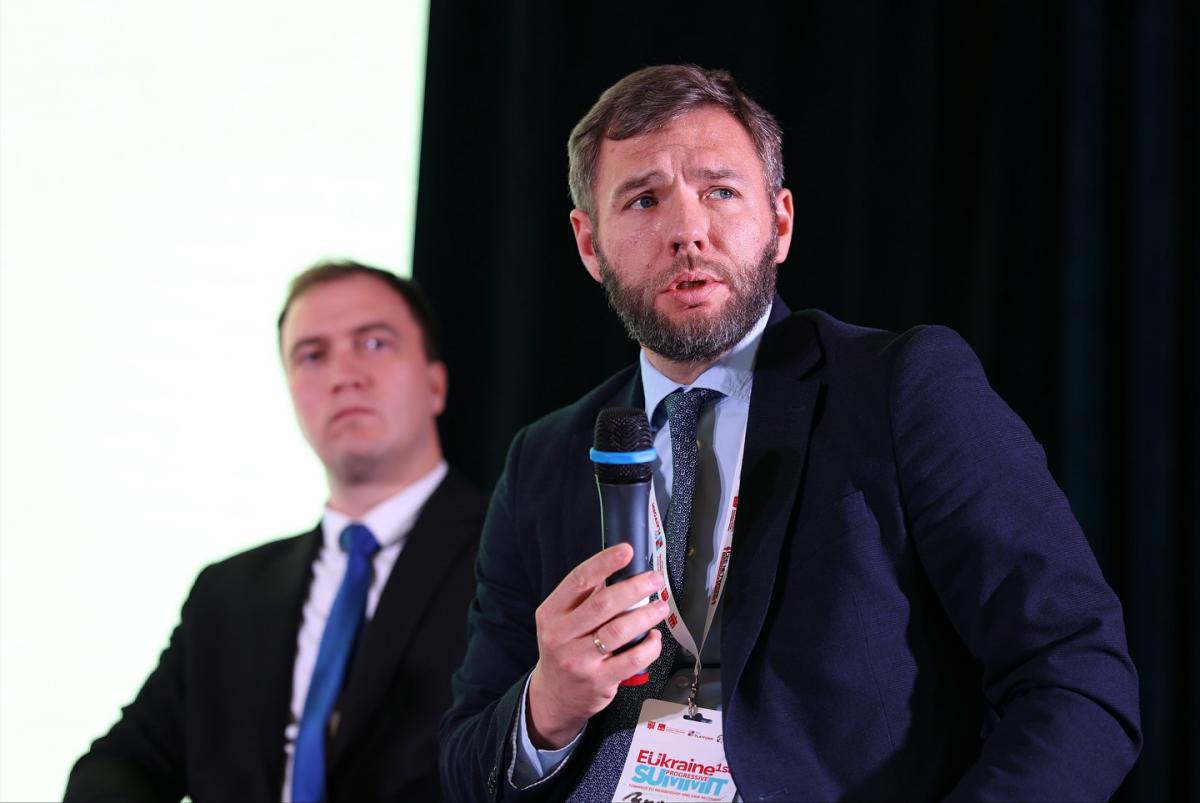
On November 07, 2025, Vitalii Gatseliuk, member of the High Qualification Commission of Judges of Ukraine, spoke at the First Progressive Summit “Towards EU Membership and Fair Recovery,” which brought together key representatives of state institutions, civil society, and international partners to discuss strategic directions for Ukraine’s European integration.
During his speech, Vitalii Gatseliuk spoke about the progress and results of justice reform in Ukraine. He paid particular attention to the issues of selection and qualification assessment of judges, emphasizing that at the current stage, the main task is to ensure the independence of the judiciary and restore citizens’ trust in it.
According to him, there are currently less than 5 000 judges working in Ukrainian courts, which is critically insufficient to guarantee an adequate level of access to justice for citizens. Against the backdrop of an increase in workload compared to pre-war levels, this poses serious challenges for judicial administration bodies, particularly in terms of forming and staffing the judiciary.
At the same time, as the member of the Commission emphasized, even in extremely difficult conditions in the frontline regions, judges continue to administer justice.
"Today, judges continue to administer justice even in frontline regions, where explosions can be heard nearby. When a judge hears shelling alongside the people and still delivers a verdict, that is true justice. It is precisely this daily work in the most difficult conditions that shows that judicial reform is not a formality, but a living change that is transforming the face of the Ukrainian court," said Vitalii Gatseliuk.
Participants in the event were also informed about the Commission’s active work in recent years. In 2023–2024, the HQCJ completed one of its longest competitions – the selection of first instance judges, which began in 2017. As a result of the competition, more than 500 recommendations were submitted to the High Council of Justice, and more than 400 judges have already been appointed by the President of Ukraine. As part of the judicial reform, competitive selection for the High Anti-Corruption Court has been resumed. Despite only 2 of 25 vacant positions being filled, according to Vitalii Gatseliuk, the main value is compliance with all legal requirements, integrity, and transparency of the procedure. The Commission pays particular attention to strengthening the human resources capacity of the appellate level, where there is currently a need to fill more than 700 judicial vacancies. The heaviest workload is in the Sumy, Zaporizhzhia, Transcarpathia, Chernihiv, and Zhytomyr regions. Interviews with candidates in these regions have been conducted, and new competitions are being prepared in large cities.
As noted by a member of the Commission, one of its priorities is to ensure the transparency of procedures. To this end, digital tools are being actively implemented. In addition, more than 1 800 video recordings of interviews have already been posted on the Commission’s official YouTube channel, garnering over 5 million views. This helps to increase public confidence in the process of selecting judges.
In the context of international cooperation, Vitalii Gatseliuk emphasized the role of the Ukraine Facility Plan, under which Ukraine receives financial support from the European Union. The Commission regularly reports on the achievement of reform indicators. In addition, the Commission’s steps in implementing the measures provided for in the Roadmap on the Rule of Law, which is a strategic document for the next stages of the transformation of the justice system, were highlighted.
The Commission pays particular attention to the protection of the personal data of judges and candidates, as well as the adaptation of assessment standards to modern professional ethics requirements. This is particularly relevant for candidates with many years of service, which began in the 1990s.
At the end of his speech, Vitalii Gatseliuk noted the priority of an impartial and reasoned approach to the qualification assessment of judges. He stressed that the criteria of professional ethics, integrity, and competence should prevail in the decision-making process. Emphasis was placed on the importance of implementing the principles of openness and transparency in the processes carried out by judicial administration bodies.

